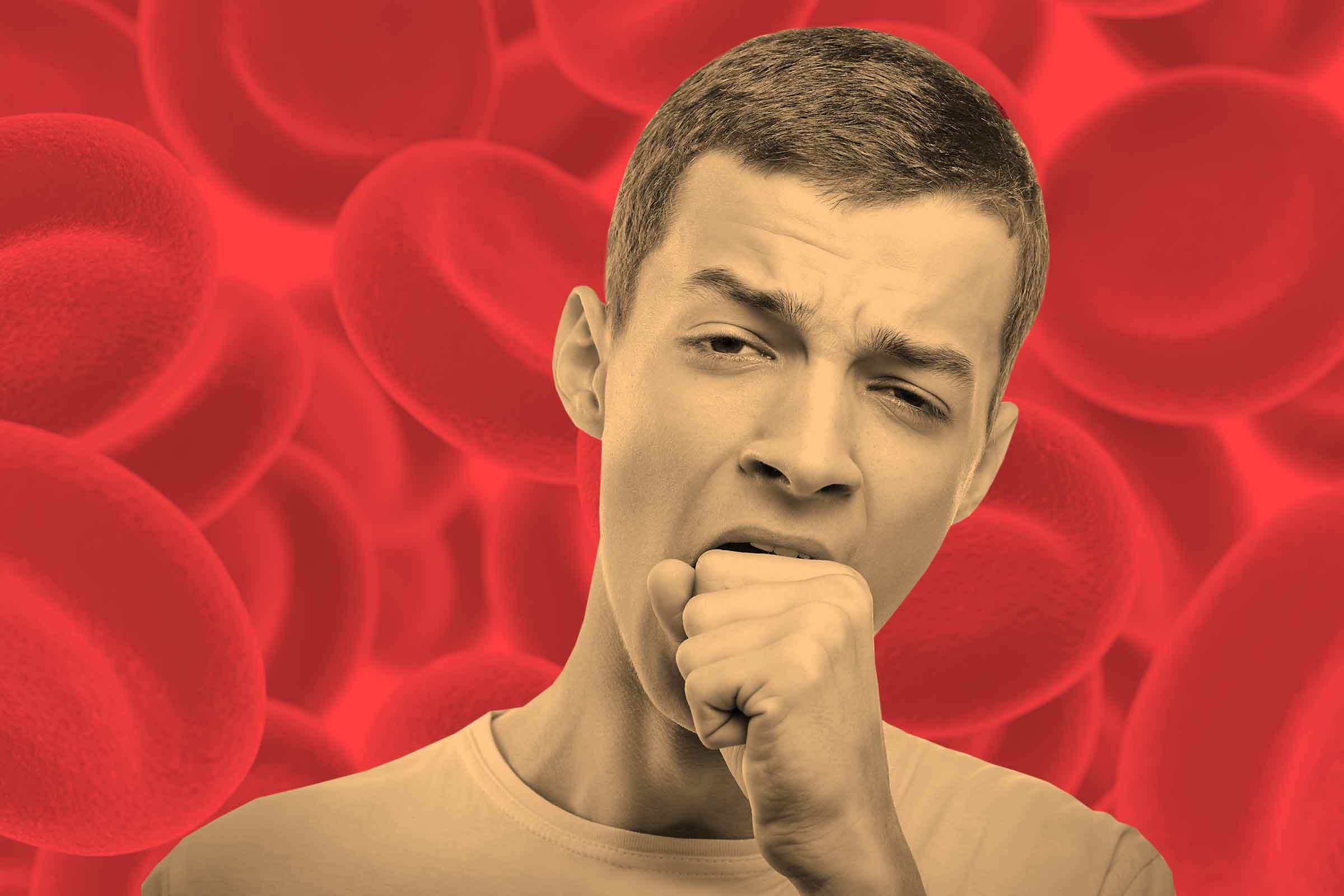Dealing with Anemia in College
Even though most students are constantly half-asleep, sometimes it can turn out to be something more serious.
By Lindsey Davis, Iowa State University
I went to the doctor about a year and a half ago because I had a nagging stomachache that wouldn’t go away.
After asking a series of questions trying to unearth the cause of my persistent pain, the doctor suggested I have some blood work done. Wanting nothing more than to find out why my stomach was giving me such issues, I readily agreed.
The doctor walked me to the lab, and there the phlebotomist drew my blood and sent it out to get tested. My brain is a little foggy, but I’m pretty sure I sat there and waited for the results to come back. The doctor returned and told me I was anemic.

Having no idea what that meant, I felt shocked to hear such a scary word.
I had no idea I was a type of unhealthy that I required a name for my condition. The doctor then told me that being anemic means that my blood lacks enough healthy blood cells or hemoglobin, which is the main part of red blood cells. Humans need healthy red blood cells because they carry oxygen to the tissues. He said I had low levels of iron in my body, which is a cause of anemia. With a healthier diet consisting of iron-rich foods and a daily vitamin containing iron, the doctor said I could easily combat my iron-deficient anemia.
I’m sure the doctor explained a little more about anemia to me that day, but either it went in one ear and out another, or I just wasn’t paying attention to him. When I got home that night I still didn’t quite understand what my newly discovered condition meant for me. I got out my laptop and searched WebMD.com for more information. Here, I learned that anemia is the most common blood condition in the U.S. More than 3.5 million Americans are affected by the condition. Women and children have an increased risk for developing anemia. Knowing this information made me feel better about having the blood condition. With a change in diet and taking a daily vitamin, I could combat my anemia.
In hindsight, I should have seen the doctor earlier. I began donating plasma at BioLife when I turned 18-years old. In order to donate plasma on any given day, you have to have an acceptable limit of red blood cell and plasma protein levels. About every other time I tried to go donate, I’d get turned away for not reaching these limits.
I’ve also had problems with feeling fatigued often, which is a symptom of anemia. Somedays, no amount of coffee or naps could help me feel less tired. Now, if I take my daily vitamin and eat healthy meals, I don’t feel so fatigued and weak.
Anemia comes in various forms and levels of severity. Forms include iron-deficiency anemia, vitamin deficiency anemia and anemia of chronic disease. Different factors affect the risk you’re at for developing anemia. Those who are menstruating, pregnant, have a disease like celiac disease, or a family history of anemia have a greater chance of becoming anemic.
Knowing that my condition is very common and mild has made me feel a lot better. I’ll admit that keeping up on an iron-rich diet can be challenging, mainly because some days I’d rather eat pizza than spinach. Yet, the way I feel when I haven’t been eating well or have neglected to take my vitamin is not a feeling I enjoy. On those days, I yawn constantly and have barely enough energy to make it to the grocery store. If it’s simple enough to combat my iron-deficient anemia, I know I need to keep up on living a healthy lifestyle.
If you have problems with constantly feeling fatigued, weak or short of breath, I highly recommend seeing your doctor. I thought I was just a sleep-deprived college student who drank too much caffeine. I never would have gone to see the doctor to find out I had anemia had my stomach not been bothering me for so long. I didn’t want to be seen as a hypochondriac, but sometimes there really can be something wrong about your health. Don’t take any chances.
If you do have an illness, I also recommend on doing your research even after you’ve left the doctor’s office.
WebMD.com is both a blessing and a curse. If you’re going on the website to try and diagnose yourself, don’t.
This idea just results poorly and you’ll mistake a head cold for acoustic neuroma. My suggestion is to only use sites like WebMD if you already know what’s going on with your body. The website is great for learning more about symptoms and treatments, as well as a gateway to more research tools. Obviously, listen to your doctor more than anything.
As a college student with anemia, I know how important it is to maintain a healthy diet and lifestyle not just because it helps tackle my blood condition, but because it all-around positively affects all aspects of health. No, duh right?
I used to think it was near impossible to eat healthy in college due to the tantalizing options of endless cake and pasta at the dining centers. Since being forced to eat healthier or continue feeling crappy, I’ve realized how simple it is to choose better options at the grocery store. Spinach has become my new best friend. Sure, it may taste like dirt all on its own, but paired with romaine lettuce, cucumbers, green pepper and a splash of raspberry vinaigrette, holy yum. Not to mention cheap as well.
I’m sure you’ve heard it over and over again, from various online articles and from your mom, but I’ll just remind you: Eat healthy and know what’s going on with your body. Stay on top of your health, because a healthy body is a happy body.









